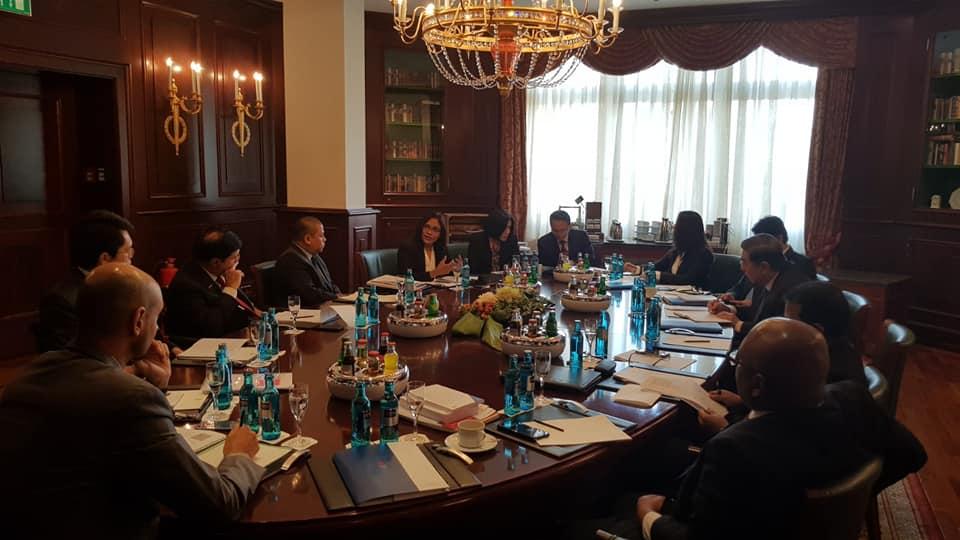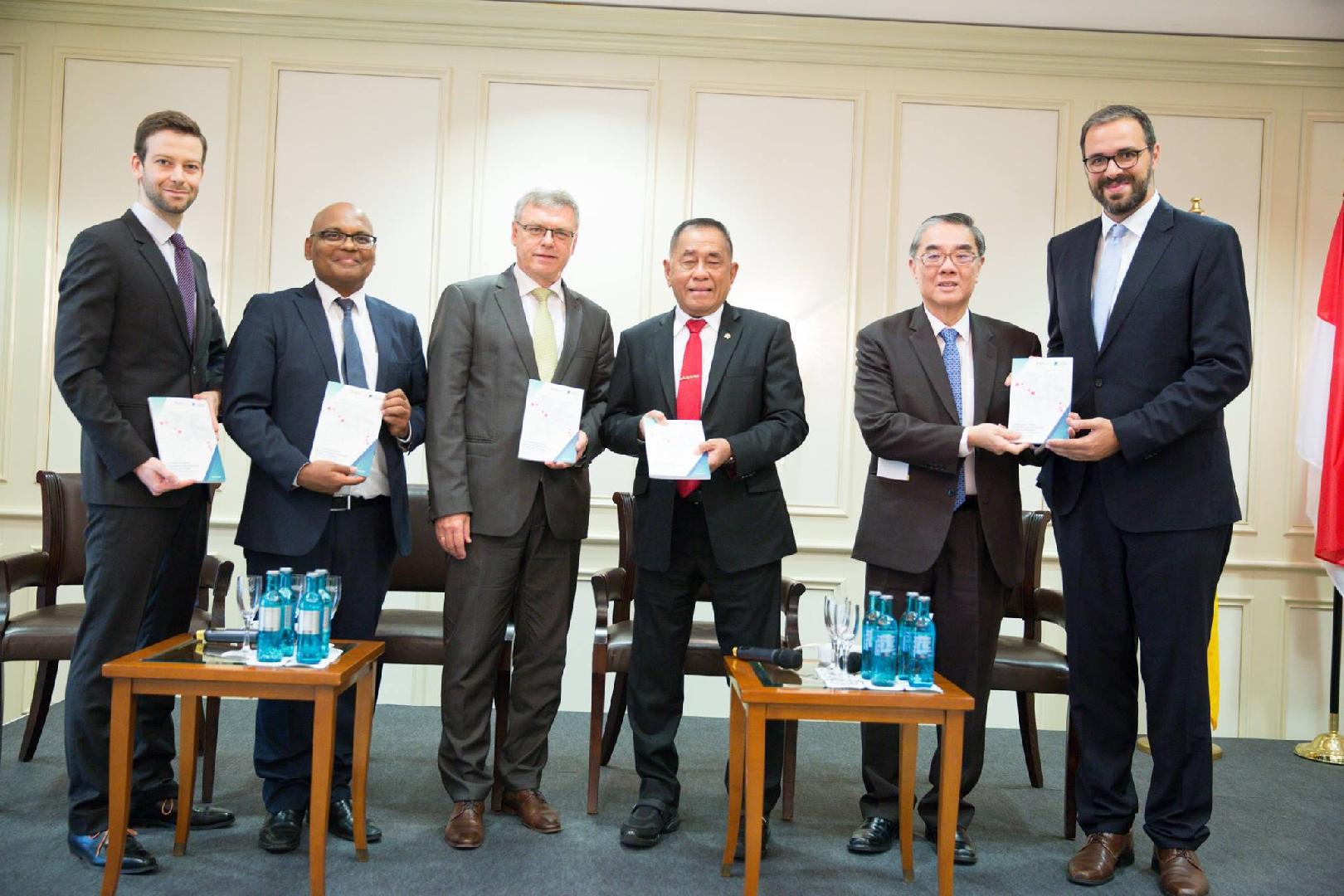Despite successes in the fight against Daesh in Syria and Iraq, neither the organization itself nor its network of affiliated groups are in demise. Instead the structure has been decentralized and activities have expanded worldwide with Asia and Europe becoming some of the focus areas. The result of the developments in Syria and Iraq, changes in the modus operandi of IS-affiliated groups and the geographic expansion of the terrorist network is a more diverse, heterogeneous and less predictable threat which calls for greater collaboration – not only cooperation – at all levels if countries want to prevent and counter violent extremism successfully and sustainably.
Against this background, the KAS Regional Programme Political Dialogue Asia and RSIS organized this year's Asia-Europe Counter-Terrorism Dialogue. The event was graced by H.E. General Ryamizard Ryacudu, Minister of Defence of the Republic of Indonesia, who delivered the keynote address at a public panel debate "The Terrorist Threat Landscape in Asia" on 16 October 2018. In his remarks, Minister Ryacudu stressed the importance of holistic domestic approaches, which involve all branches of government as well as non-governmental stakeholders, and the need for Southeast Asia to improve collaboration among the ASEAN member states. The "Our Eyes"-initiative, which the Minister launched earlier this year, is a promising attempt to provide a framework for this collaboration among law enforcement and security agencies.
In Indonesia itself, the Ministry of Defence works closely with the Ministry of Education and civil-society organizations in order to prevent the radicalization of vulnerable youth and reintegrate rehabilitated extremists into the society. As the country with the biggest Muslim population in the world and various local conflicts, Indonesia recognizes the need for the country to step ahead and be at the forefront of the fight against violent extremism and terrorism. The country is therefore happy to share its experiences and collaborate with extra-regional partners such as Germany and the European Union.
The 2018 Asia-Europe Counter-Terrorism Dialogue took place from 15 to 17 October 2018. Ten high-ranking delegates from Indonesia, Malaysia, Pakistan, the Philippines, Singapore and Sri Lanka first went to Brussels where they had meetings with the Office of the EU Counter-Terrorism Coordinator, the Belgian Coordination Unit for Threat Analysis and Ministry of Foreign Affairs, EUROPOL, the European External Action Service, EU INTCEN and NATO. During the second part of the programme in Berlin, the delegation held talks with the Ministry of the Interior, the two German Security services - Bundesnachrichtendienst and Office for the Protection of the Constitution -, the Federal Chancellery and the Violence Prevention Network. Among others, they discussed how Germany can work with its Asian partners on questions such as foreign terrorist fighters, returning women and children, interagency collaboration, information-sharing, prevention, de-radicalization and rehabilitation.
During the dialogue, KAS and RSIS also launched their newest joint publication ‘Combatting Violent Extremism and Terrorism in Asia and Europe – Form Cooperation to Collaboration’ which is now available for download here.
Already in 2015, KAS and RSIS have started a cooperation to foster exchanges between Asian and European countries on countering violent extremism and terrorism. The result of this has been the establishment of the annual Asia-Europe Counter Terrorism Dialogue which takes place in Asia and Europe in alternating years. The Dialogue offers a unique opportunity for policy makers, representatives of ministries as well as law enforcement units and experts from the academia to have an exchange on current developments and collaborative activities. In addition, the discussion is supported by regular publications.




